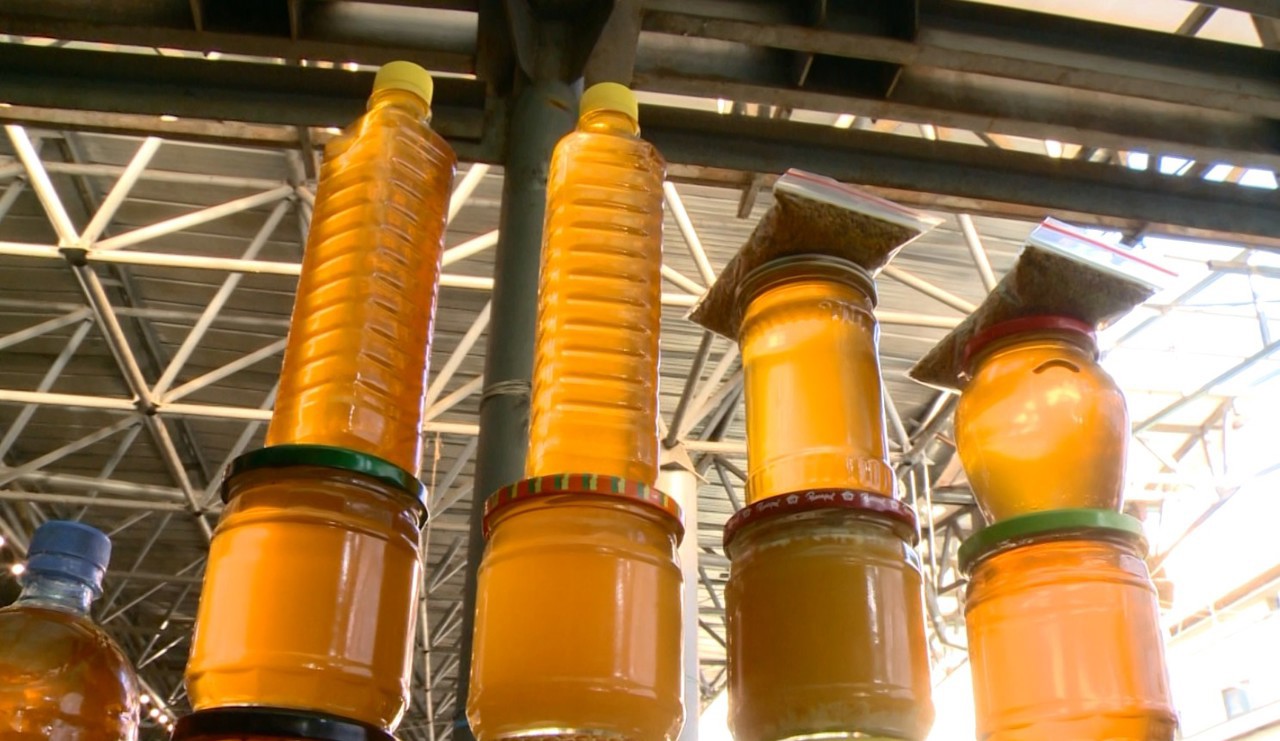Moldova water quality linked to serious illnesses

Drinking water quality directly influences everyone's health. Some non-conformities with established standards can lead to serious illnesses, such as oncological diseases, musculoskeletal system diseases, dysentery, giardiasis, and other health problems.
Experts warn that dental health is also influenced by the water we drink, which is why it is essential to hydrate from safe sources. The impact of drinking water is also reflected in less obvious aspects of daily life, such as the agitated state of newborns, caused by using water contaminated with nitrates.
The Nicolae Testemițanu State University of Medicine and Pharmacy (USMF) is one of the institutions that has conducted studies and scientific work on water quality and its impact on the human body.
Natalia Bivol, a water quality specialist and university lecturer in the Discipline of Hygiene, Department of Preventive Medicine at USMF, has studied fluoride and its content in water from different regions of the country.
Fluoride: Between excess and deficiency, danger lurks at both ends
According to Natalia Bivol, there are areas in the Republic of Moldova where the fluoride content "far exceeds the limit": "the best-known regions are the districts of Fălești, Glodeni, Ungheni, Leova, Cahul, Cantemir. If we were to analyze, the potentially affected population is vast, around 1.25 million people."
According to the specialist, fluoride affects the entire organism, but its impact is more pronounced on teeth, and children who have grown up in regions with high levels of this element are particularly affected. "If they grow up until the age of 5-7, when their permanent teeth begin to develop, then they risk having yellowish-brown spots on their teeth. When a child grows up in a different region for the first seven years, and then moves to a locality where the fluoride levels in water are high, they will not have spots," explained Natalia Bivol for Teleradio-Moldova.
The age of affected school children varies depending on the locality. An approximate percentage would be "from 37% to 70%" of students affected by fluorosis due to water.
Fluorosis affects not only through the appearance of spots, the destruction of dental enamel, and visual appearance, but also psychologically, states the specialist. "Children don't feel confident, they don't always smile, because they develop complexes." The bone system and, according to some studies, the thyroid gland, as well as other internal organs, could also be affected by the elevated presence of fluoride, the university lecturer asserts.
At the same time, low fluoride content also poses risks for teeth. Being below the limit, more so in localities supplied by surface waters, such as the Nistru River and the Prut River, exposes the population to the risk of developing cavities, the expert specifies.
"It could be better." Water quality, directly proportional to quality of life: It also affects newborns
Asked how she assesses water quality in the Republic of Moldova, Natalia Bivol states that "it could be better." In her comment for Teleradio-Moldova, the USMF specialist affirms that hand-dug wells are polluted with organic substances, indicating the presence of ammonia, nitrites, and nitrates in the water: "we know that, in all villages, wells have water with nitrates."
"While microbes are destroyed by boiling, nitrates remain," the specialist explains.
According to the expert, nitrates, which do not disappear upon boiling, transform into nitrites. These form bonds with hemoglobin, and as a result, hemoglobin cannot transport oxygen: "when water from wells containing nitrates is used to prepare infant formula for newborns, babies become agitated, cry, and have difficulty breathing." Due to lack of oxygen, the expert explains, the baby's color becomes cyanotic, a blue or purplish hue of the skin.
She warns that family doctors should "absolutely recommend mothers to buy safe water for preparing powdered milk formula." Iuri Another aspect mentioned by Natalia Bivol is the hardness of well water. Water hardness is a criterion that could be associated with problems such as kidney stones (renal lithiasis), gallstone formation, and affect joints in adulthood, having a cumulative effect that manifests especially in old age.
The National Agency for Public Health (ANSP) has recommended citizens to be cautious in using water from public wells and to avoid consuming water from those not periodically checked. This recommendation was made following the finding that over 75 percent of wells in the country have contaminated water.
Bottled water: Hydration means quality, not just quantity
Bottled water seems to be a solution to avoid the risks posed by non-compliant water. However, for proper hydration, mineralization is also important. In the absence of necessary minerals, the expert told us, the body's own minerals are utilized.
"Rather than buying supplements containing calcium, magnesium, which we need, it is much better to buy water with good mineralization," suggests the USMF specialist, mentioning that the absorption rate of minerals is much higher from water than from supplements.
Also, let's not forget that we are approaching the summer season, and hydration "could prevent many illnesses, such as, for example, myocardial infarction."
The USMF specialist asserts that cardiovascular problems often stem from dehydration: "Blood is too viscous, and those who also have issues with arterial tension (blood pressure), if not well-hydrated, can suffer strokes and heart attacks. When we don't hydrate sufficiently, the body suffers, not only from the standpoint of health risks such as cardiovascular or digestive issues, but we also suffer from an aesthetic standpoint; hydrated skin looks much healthier, we don't get tired as quickly."
Another highlighted benefit is stress resistance: "water also helps us when we are stressed; if we are hydrated, the risk of strokes or myocardial infarction decreases."
Natalia Bivol also suggests that water is essential not only for body detoxification and a healthy metabolism but also for maintaining mineral balance. "We must pay attention not only to the quantity of water consumed but also to its quality – it should contain the necessary minerals. And if it doesn't, we must supplement them appropriately," the specialist points out.
According to data presented by the National Agency for Public Health, in over half of the public water supply systems in the villages of the Republic of Moldova, non-compliant samples were detected in 2024. Analyses show significant exceedances of chemical and microbiological parameters, and specialists warn that, in some cases, consuming this water can endanger people's health.
In a discussion with ANSP specialist Liliana Carp, we identified several examples where water consumption becomes dangerous: "Nitrates have an impact on health; they risk transforming into nitrites, which in turn can cause oncological diseases."
"Boron particularly affects joints and can contribute to the appearance of osteoarthritis, arthritis, and other diseases of the musculoskeletal system," explained the ANSP medical specialist.
Microbiological parameters, when they exceed permitted limits, significantly increase the risk of illness. The presence of the bacterium Escherichia coli can cause hemorrhagic enteritis, known as enterohemorrhagic E. coli infection. Other pathologies caused by consuming contaminated water include viral hepatitis, bacterial dysentery (shigellosis), as well as parasitoses such as giardiasis.
Translation by Iurie Tataru





